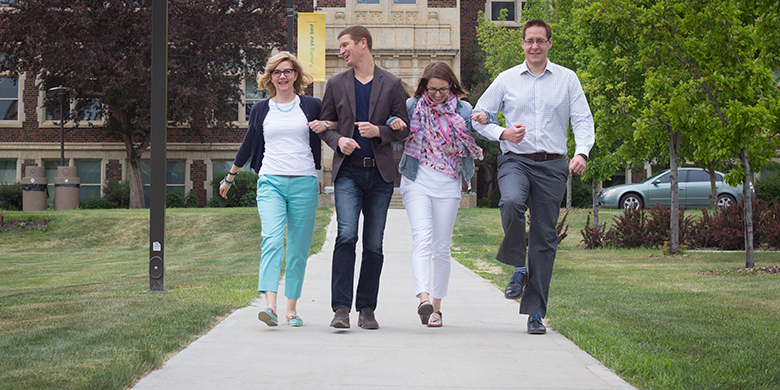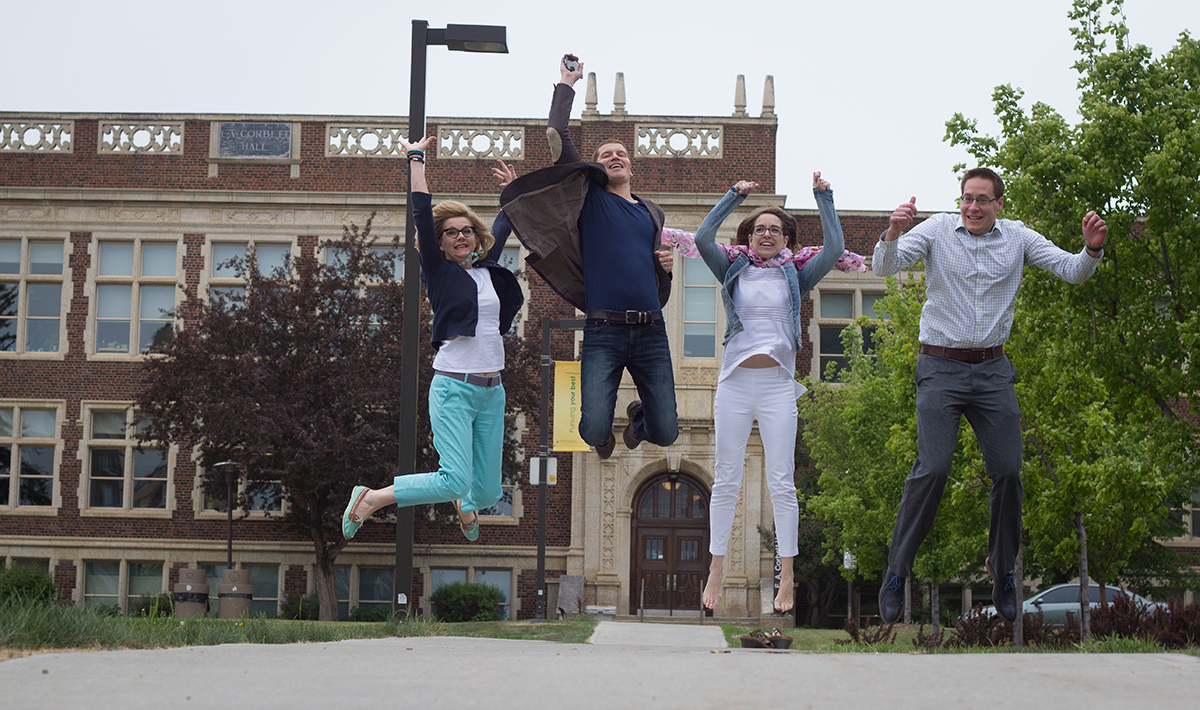
Faculty and staff are encouraged to walk their way to better health with the Faculty of Rehabilitation Medicine's first-ever Amazing Race challenge. (Photo: Bryan Alary)
(Edmonton) Faculty, staff and alumni will be lacing their shoes and charging their smartphone pedometers this summer, when they embark on a 1,155-kilometre virtual trek to the West Coast as part of the Faculty of Rehabilitation Medicine's first ever Amazing Race challenge.
"We start June 1 and the first team wins the prize," says assistant dean Deborah Palmer. She along with Stuart Cleary, Nicole Stogrin, Judy Sara and Katelyn Brown comprise the organizing committee that's throwing down the challenge to the faculty members, support staff and alumni as a way to promote physical activity.
Five-person teams will compete by tracking their footsteps with pedometer apps on their smartphones. Those steps are then tallied and the number of clicks covered each week will be shared, so the slower teams know to pick up their feet. The first team to reach that 1,155 km mark wins.
The benefits of regular physical activity are well established, but so too are the consequences of a sedentary lifestyle. Too much sitting can increase your chances for heart disease, osteoporosis, arthritis and cancer.
"Activity trackers on phones and watches are a small reminder to be more active. This contest is a great way to emphasize the importance of physical activity and give us a goal to meet," says Mark Hall of the Department of Physical Therapy and a member of one of the first teams to sign on.
Inspiration for the contest sprang from a health and safety meeting. The advisory committee that put it together liked the Amazing Race idea for its simplicity, attainability and also for its competitive edge.
"This event promotes a simple activity that facilitates non-work-related hallway banter and collegial trash talking," says Geoff Bostick, one of Hall's teammates.
Bostick and Hall also appreciate this as an opportunity to "walk the talk," both being strong advocates of regular physical activity.
Another side to the Amazing Race contest is the social aspect. That's why teams should be comprised of members from different departments.
"Our work is often very isolated, and it is more and more difficult to build a sense of community, within and across departments," says Lu-Anne McFarlane of the Department of Communication Sciences and Disorders and team captain for 'TIGgers'-Hall, Bostick, Teresa Paslawski and Chris Zarski. "Initiatives like this encourage us to work together on something that is good for the spirit and for the body and to strengthen connections-all things I am happy to be part of."
So while there are prizes for first, second and third place, all participants win by exercising their social as well as their physical muscles. Although the starting line is June 1, teams can still sign up afterwards-they'll just have to walk faster to beat Hall, Bostick and McFarlane.
To sign up, contact Katelyn Brown.
